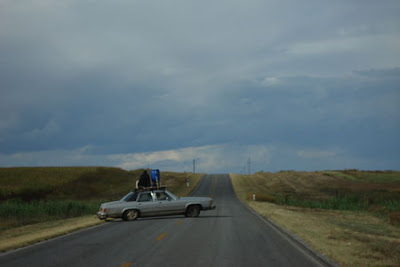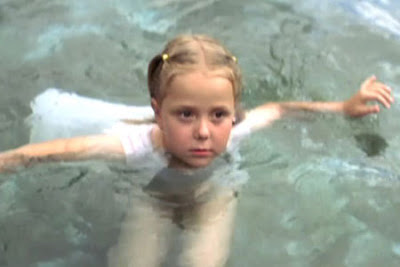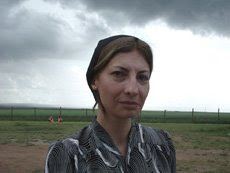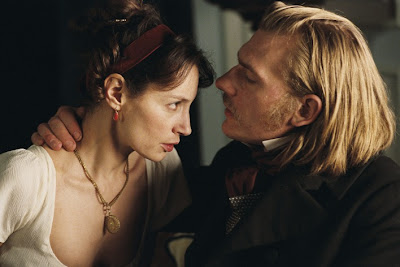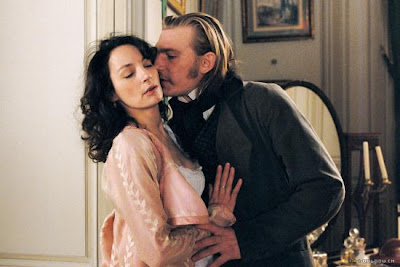After The Assassination Of Jesse James By The Coward Robert Ford it was only a matter of time until another gem of a film would pop up, which could go head to head with the beauty of Jesse James. The one film, who I feel can fill up that part is Carlos Reygadas' Stellet Licht (Silent Light), a remarkable enchanting hypnotizing poem from beginning to end. It's stunning with long takes that go on and on, every one of them building up to a tiny climax, before going into the next. You feel the urge to cry hysterically over its magnificent beauty. It's a wondeful journey which sometimes feels to be more a documentary than a fiction film. The story takes place somewhere in Mexico and tells of a Mennonite family. The language they speak is Plautdietsch, a mix between East Low German and Dutch. The father of the family Johan, finds himself in a crisis of his own. Loving his family and his wife Esther, this love however could not save him from falling for Marianne. Not sure what to do and who to choose his faith in God is put to the test. Will he be forgiven for loving a woman other than his wife? Stellet Licht is drenched in beauty, every detail is perfect. Children play in a lake, filmed from the most wonderful angles, touching upon their youth and innocence. The camera provides for beautiful still images and frames are kept in the same place, even when the actors walk off screen. The camera stays focusing on a flower who slowly comes into view as the camera moves slowly into focus. And walking through the yellow grass, walking up the stones towards Marianne who waits for Johan as they kiss passionately. Every bit is extraordinary and beautifully carried out. Reygadas has made a real work of art, one which is filled with breathtaking moments and tells a sad tragic story. However, this isn't a film for everyone as some might find it too slow or even boring. It has touches of Joachim Trier's Reprise and Gus Van Sant's Gerry, both magical films which some found hard to digest. But if you love both these films or Reygadas own feature length debut Japón, you're in for a real treat and will love Stellet Licht as it will provide you a very fulfilling and satisfying experience. It haunts you long after your eyes leave the screen.
Monday 3 March 2008
Ne Touchez Pas La Hache
Ne Touchez Pas La Hache (Don't Touch The Axe) by director Jacques Rivette is a powerful film about two lovers who don't get the chance to love. At the time Armand de Montriveau confesses his love to Antoinette de Langeais, her stubborness keeps them from falling for each other. And once she shakes off her pride, it's too late and it's him who now plays hard to get. It's a game of love which is never played out. Rivette tells the lover's story beautifully, with the camera slowly moving into the scene, lingering on the beautiful mise-en-scène, while the actors perform on their stage. Especially during the scenes in which noone else but the two lovers are shown, Ne Touchez Pas feels mostly like a theatre play. The actors get to closely interact. As a spectator you can feel their attraction for each other and their constant pulling and pushing. Great are the intertitles in between, which sometimes give the film a comedic touch presenting unfinished sentences which are only finished later, the outcome at times being very funny. The acting is strong. Both Guillaume Depardieu as Armand and Jeanne Balibar as Antoinette shine. Especially Balibar gives a performance which at first seems hard to grasp, her acting being quite different than you're used to. Yet, it keeps her performance fresh and fascinating. Ne Touchez Pas La Hache is a very solid film, with beautiful sets. Some might find it a bit slow, but for those who can appreciate the beauty of takes being longer than usual, will find themselves drawn into a wonderful period piece.
Subscribe to:
Posts (Atom)

